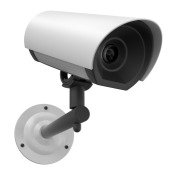"How can Video Surveillance Laws Influence your Monitoring?"
Video surveillance laws should be understood before you develop a surveillance strategy to protect your house.
If you get a video surveillance camera for your house or business, you need to have an understanding of the laws within your state.
The government has these laws so you do not infringe on the privacy of others. You need to check your individual state laws on surveillance and pictures.
Common Sense for Surveillance

Most people will not have the time or patience to go through the state laws to see if their cameras are legit or not. You can use common sense with your surveillance.
***Disclaimer: I am not a lawyer, so if are concerned about your monitoring, you need to check on your state's laws.
You can, in general, perform surveillance on your own private property. But this is only in areas where people do not expect a level of privacy. Some states have laws concerning 'invasion of privacy'. So, there are laws against covert surveillance where people expect privacy. These areas include bathrooms, bedrooms, and locker rooms.
In many states, it is actually legal to have monitoring in 'private' areas. But for home security do you really need to have monitoring in these areas? You should probably focus on the perimeter of your residence and entrances.
Regarding surveillance and your own personal home security, you should not have to worry about monitoring on your own personal property. Even if it is legal in many states, you might not want to monitor in your bathrooms or bedrooms. If you do have reason to have surveillance in these private areas, you need to check your state laws to see if it is permissible.
When monitoring around the perimeter of your house you also need to be careful of the area covered by your surveillance camera. You are fine monitoring your premises. You will need to check your local laws if your surveillance goes outside the perimeter of your residence. But you should not be pointing cameras at your neighbor’s house.
Another area you will need to investigate with your local laws is the subject of audio. If you have a hidden camera and and you are also capturing audio, you might have to get permission from your subjects. Again, it depends on your local laws.
Video Surveillance Laws and your Home Security

Prior to installing your home security, you should quickly understand your local laws on video surveillance. Here is a quick one page summary on how each state deals with video surveillance. For more detail, you will need to check out your state's laws.
In general, if you monitor your own property you will be perfectly OK. Certain states prohibit from monitoring private areas (bathrooms, etc.) while some states are fine with it.
Summary
Video technology has been advancing so fast that the price to get these cameras has dropped quite a bit. Many more people have access to this technology. Laws are still a little ambiguous and are being developed regarding video surveillance laws. It is better to be conservative and safe in what you are monitoring.
Stick to monitoring your own personal property and you should be fine. It starts getting into a grey area if you monitor private areas or areas outside your property.



